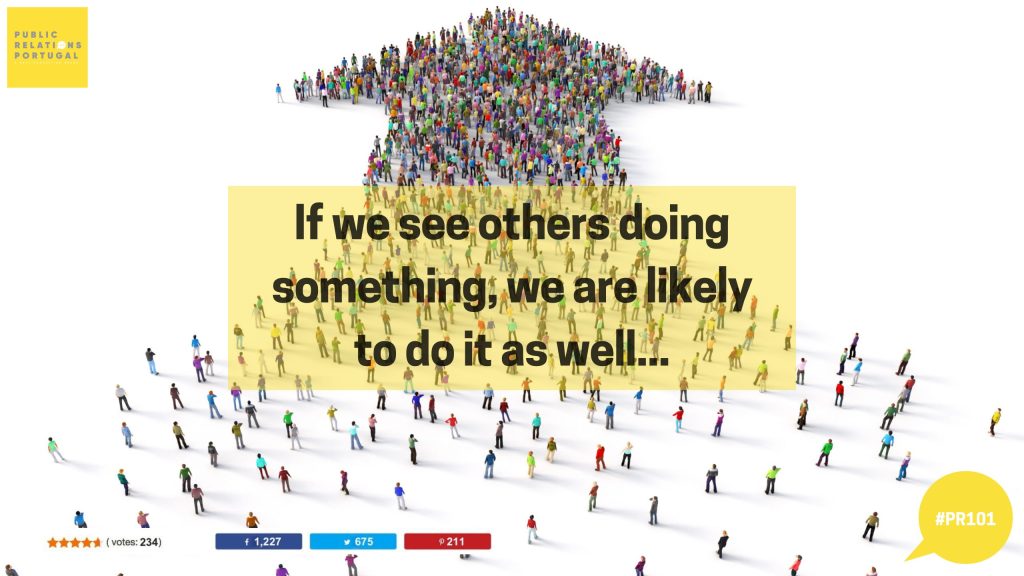In today’s world, we are constantly exposed to information, choices, and decisions. Deciding what to buy, whom to trust, and what actions to take can be overwhelming. This is where social proof comes in. It is a psychological phenomenon in which people look to the actions and opinions of others to guide their behavior.

If we see others doing something, we are likely to do it as well. This can range from choosing a restaurant based on positive reviews to buying a product because it has high ratings or recommendations from friends.
Public Relations Portugal has previously approached the use of psychology in marketing. In doing so, the seven influencing techniques from Robert Cialdini were discussed. One of the techniques is social proof. This is usually not the reason someone visits a website. Nevertheless, we want them to see proof while they are there.
What is social proof?
Social proof attempts to make a brand’s value proposition more believable. A company does this by using words or actions from the audience. By using social proof, the ”herd behavior” or ‘’the bandwagon effect’’ of humans is triggered. It is made visible what other people have approved of the product or service.
This psychological phenomenon is tough for potential customers to ignore. This means that you can encourage people to purchase by showing reviews, review stars, the top 5 products or services, or how often an action has been done before.
How to implement social proof?
A firm must use the appropriate place to add social proof. People should notice it; they should see it easily. Place it near the top of the visual hierarchy for a given page. Insert social proof near the assertion it supports and include it in the most noticeable parts of the page.
In addition to a visual hierarchy for each page, there is also one for each scrolling depth. Any page block can send a message that guides visitors’ eyes for good or bad.
Social proof examples:
- Testimonials and reviews: how customer feedback on your website, allows companies to demonstrate the value and effectiveness of their products or services and encourage others to purchase.
- Recommendations from someone special or an expert: Have a famous person or expert recommend a product or service. This can provide a powerful form of social proof. Consumers are more likely to trust and follow the recommendations of celebrities they admire or experts with knowledge. This is also known as the halo effect.
- Press mentions: Add a media source’s logo to the website if they have mentioned the brand or company. Since referral traffic from press mentions is fleeting.
- Client and partner logos: For example, instead of putting ”our customers” on the website, consider ”trusted by.” Remind customers that they trust you in addition to working with you.
- Data and statistics: Insert on the website a template with a number ticker. Share the number of years in business, the size of the team, the number of happy customers or projects, or the return on investment.
- Social media shares: Social media metrics, such as likes, shares, and followers, can provide a form of social proof. When consumers see that others are engaging with a brand on social media, they are more likely to trust and follow that brand themselves.
- Metrics on social media are among the most visible content marketing. Because of this, they are often overvalued. When counts are increased, so does credibility. Therefore, use share buttons with counters only if the number of shares is also generally high.
- Awards, certifications, and memberships: Trust badges, such as security certifications and awards, can provide a powerful form of social proof. Place these badges on your website to build trust and credibility and encourage buying.
In conclusion, Social Proof can influence our behavior in many ways. It is a powerful psychological phenomenon. Not quite sure where to start? Professional Public Relations can be of service in applying social proof.